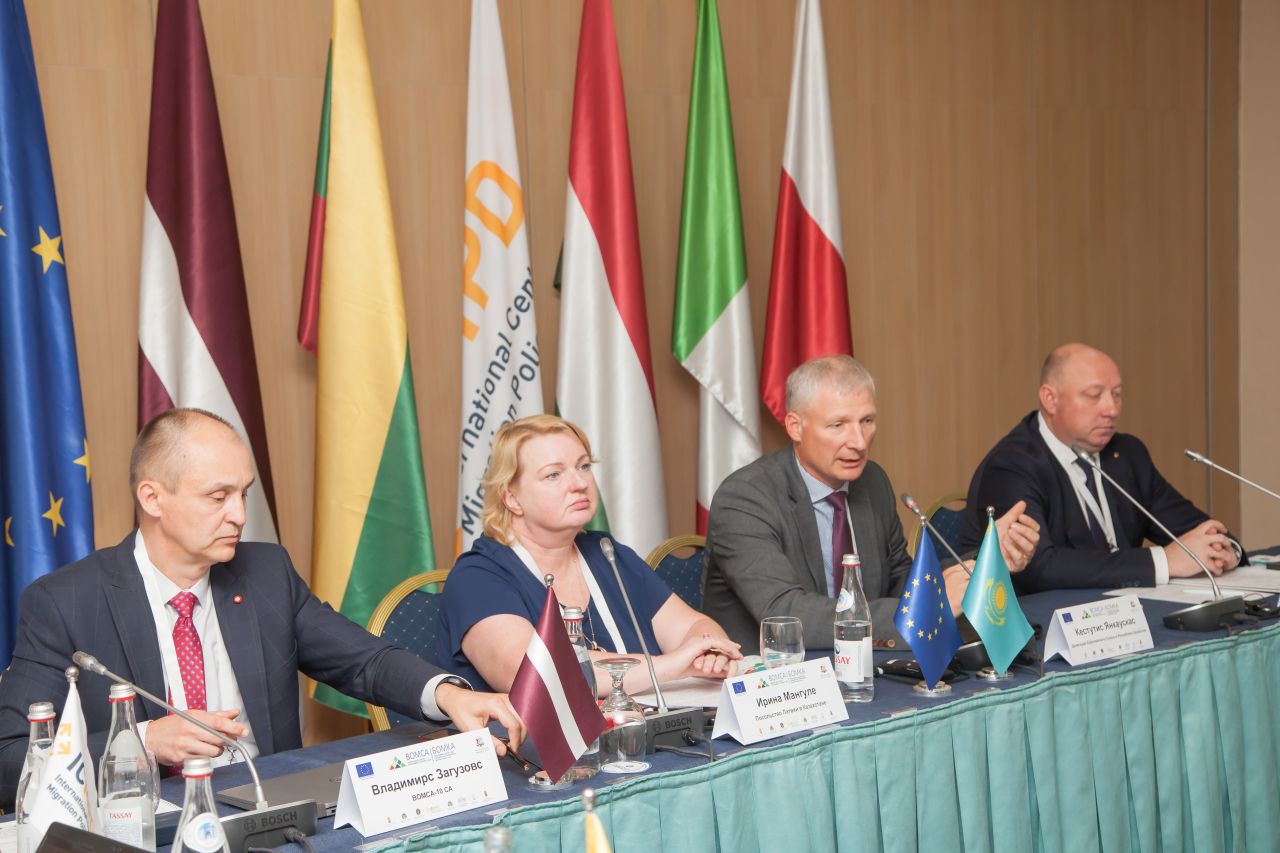On September 5-6, 2022, in Nur-Sultan, Kazakhstan, the Border Management Programme in Central Asia – Phase 10 (BOMCA 10) started the first round of its National Project Steering Group (NSG). The meeting was aimed at reviewing the Programme’s progress for the year and to define plans for the upcoming period. For this purpose, the Programme’s leadership, representatives of the European Union and implementing partners met with the key partners, such as state agencies and international organisations.
In his opening speech, Deputy Project Coordinator Mr. Vladimirs Zaguzovs highlighted the importance of the NSG, not only in terms of assessing already implemented activities, but also its instrumental role in laying the foundations for further cooperation with national partners. Mr. Maris Domins, Regional Manager, praised the efficiency of established communication channels and cooperation mechanisms.
The first day was dedicated to the joint session, followed by bilateral thematic consultations with each of the key national stakeholders. The consultations covered partnership opportunities for the next year with international stakeholders and an assessment of the previous cooperation. These meetings are expected to serve as solid base for the upcoming Regional Project Steering Group to evaluate progress of project implementation in the Central Asian (CA) region.
Further, the BOMCA component leaders presented some brief information on the project results for 2022 and an overview of the planned activities.
They reported that out of 93 activities across four thematic areas on regional and national levels, thirty took place in Kazakhstan. Last year, a series of workshops were carried out for the Heads of Central Asian Border Guard and Law Enforcement and Investigation agencies, including Customs Training Institutions and National Training of Trainers sessions on identification and profiling techniques. The Kazakh heads and experts of K-9 centres further learned about the best practices of the European Union on detection of arms, explosives, ammunition, drugs, precursors and a currency.
Also, BOMCA carried out technical missions on the analysis of current customs legislation applied in CA countries in transit areas, and in the area of trade facilitation, provided in a form of legal and trade analysis and the planning of related measures. Furthermore, to support the customs administration in developing and improving their risk management system through the application of innovative methods, tools and information systems, the Programme organized a national workshop on the application of innovative principles and methods of risk management and green channels.
In 2022, over 200 representatives of the Kazakh state agencies and non-governmental organisations participated in the Programme’s tailor-made activities and the overall number of participants from border, customs, and veterinary/phytosanitary agencies and civil society from all Central Asia countries reached 1400 people. Remarkably, the Border Service of the National Security Committee, followed by the State Revenue Committee under the Ministry of Finance and Ministry of Internal Affairs of the Republic of Kazakhstan, actively participated in project activities.
It is noteworthy that the results of the Programme’s activities include action points proposed to the national partners in the format of recommendations, guidelines, operating procedures and training manuals.
During the meeting, all parties reiterated their mutual interest in fruitful cooperation to maximise achievements and expressed their commitment to the overall priorities and focus on the upcoming activities. NSG is the country level mechanism of the project implementation management, which provides the overall oversight and coordination for all aspects of the BOMCA 10 planning and implementation. The series of five meetings in Central Asian countries serves as a basis for monitoring progress towards the project goals and as a reference point for facilitating co-operation and partnerships with the beneficiaries during the implementation phase.

